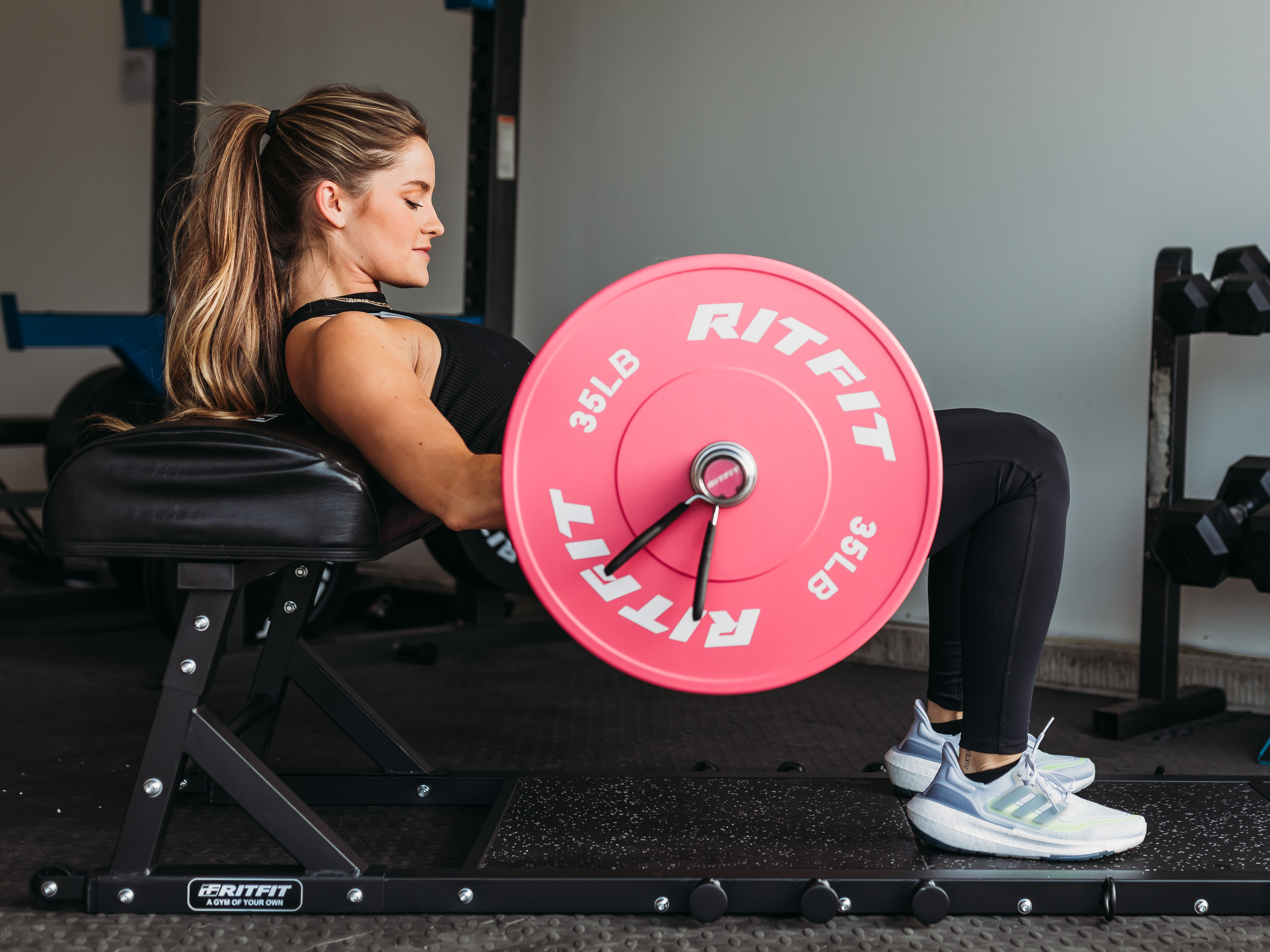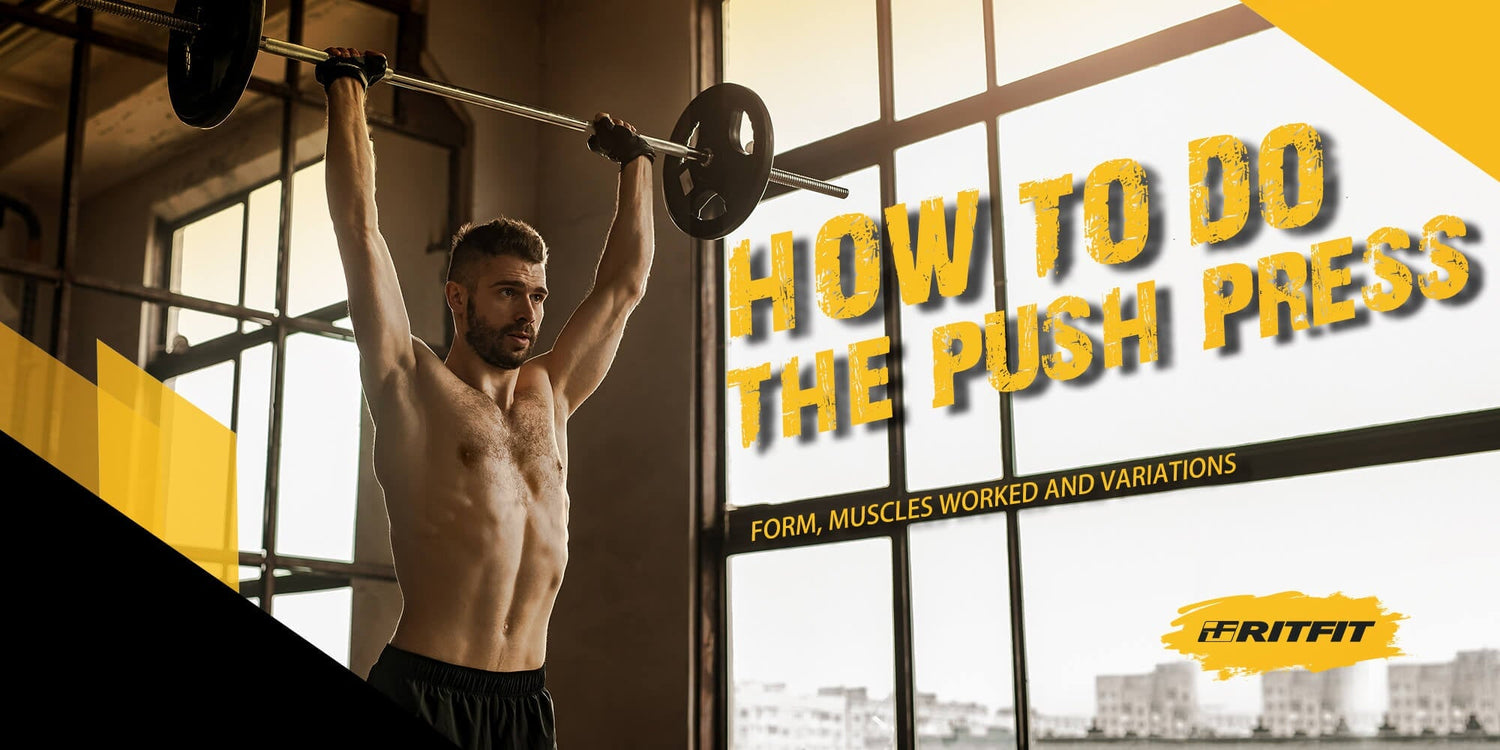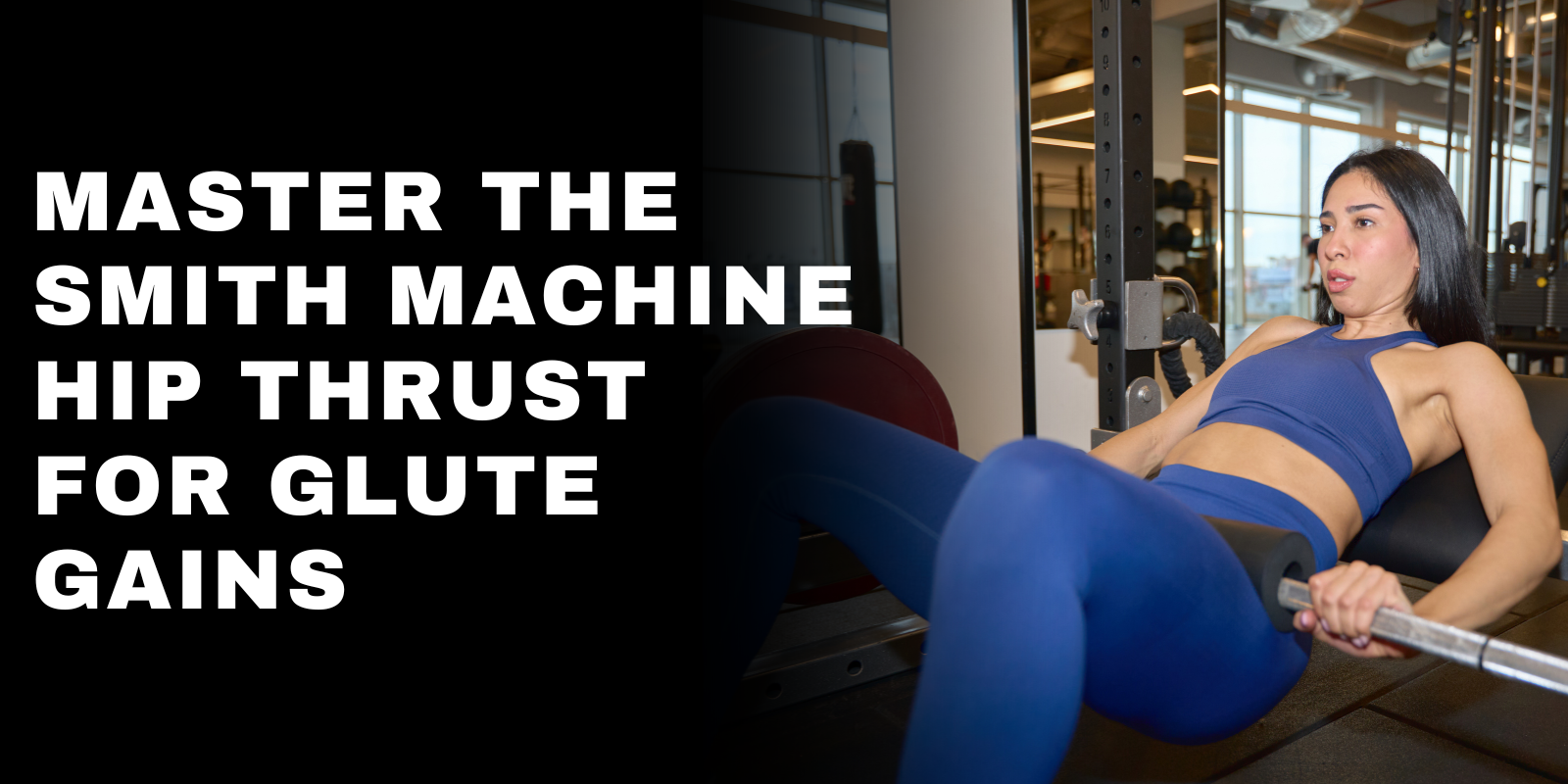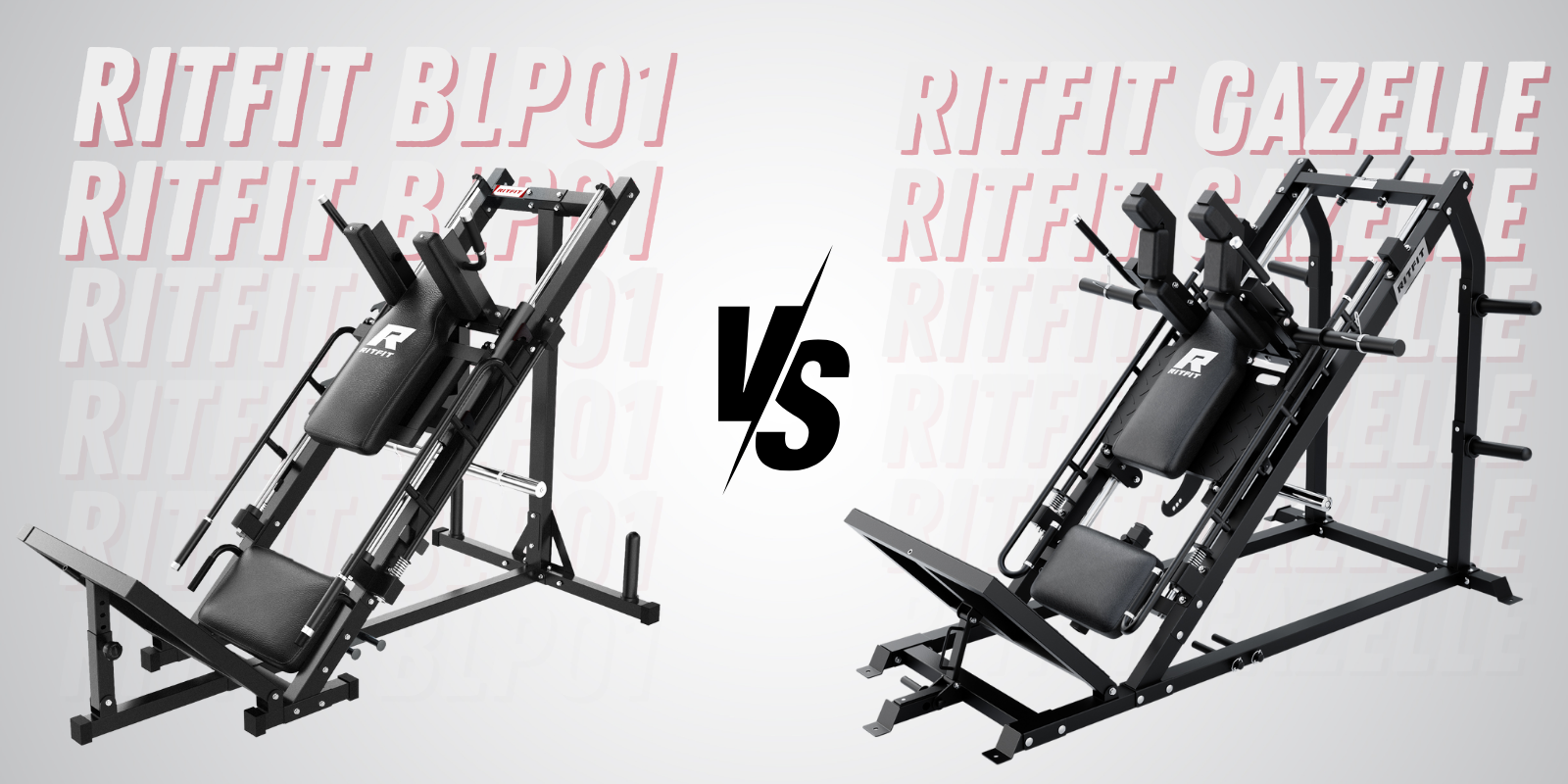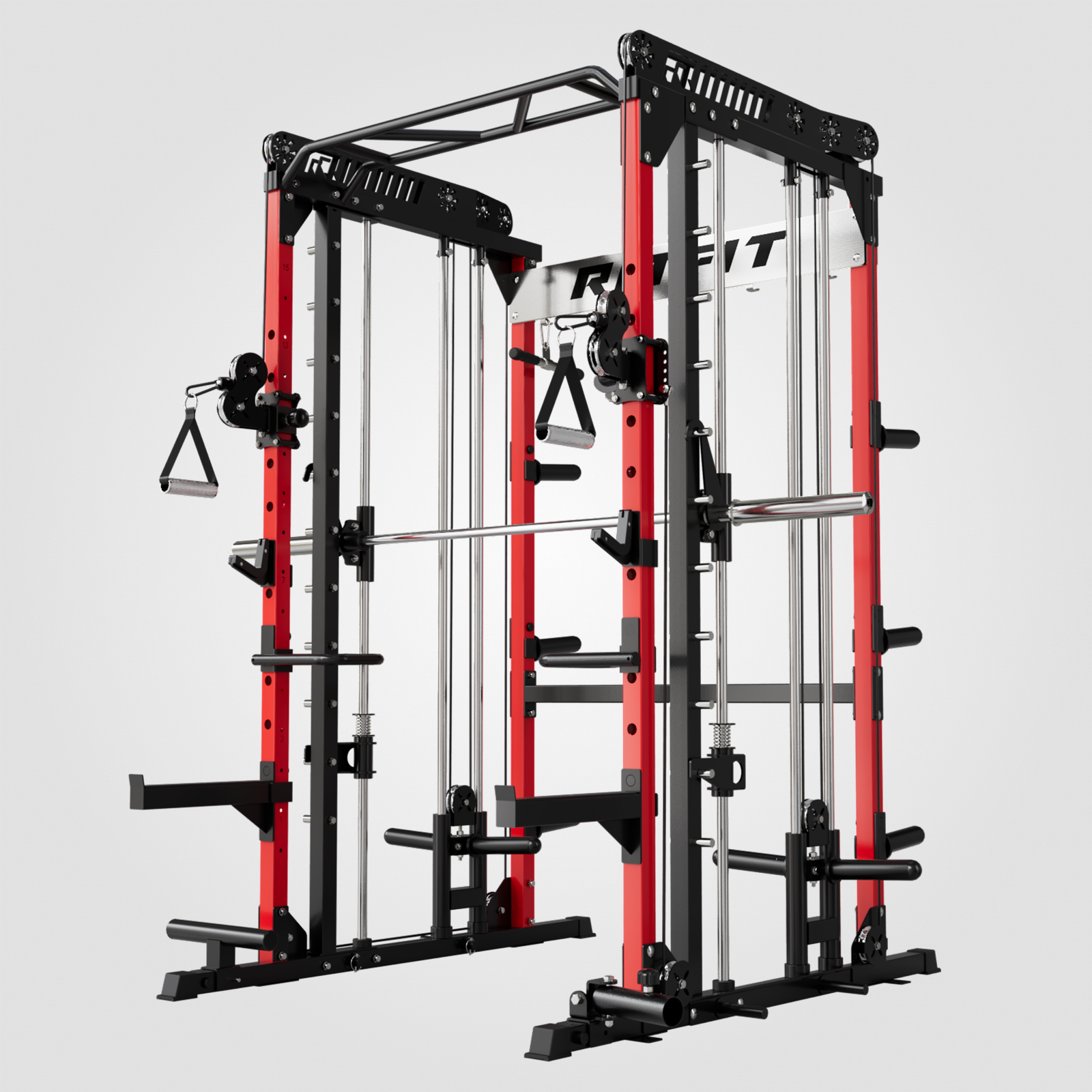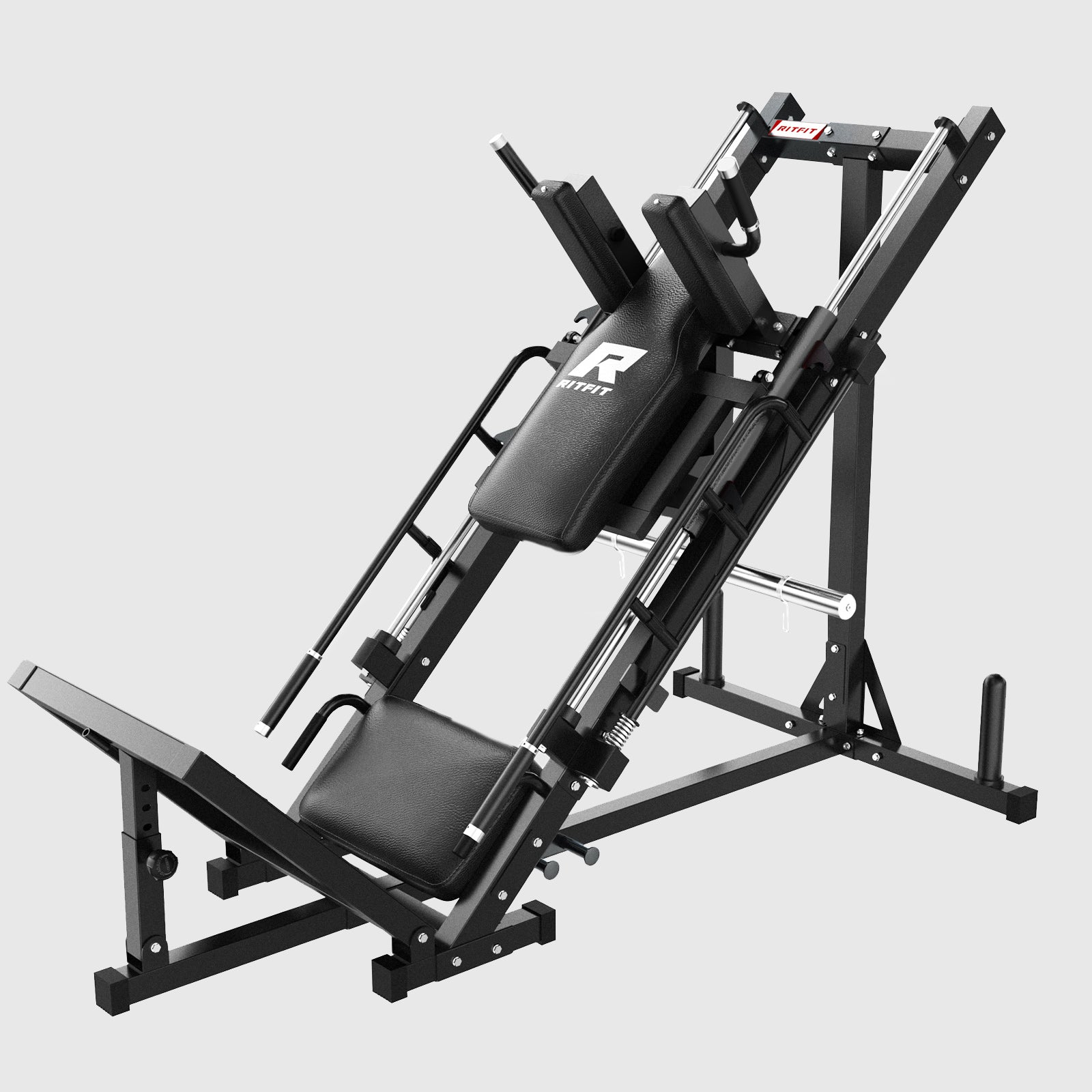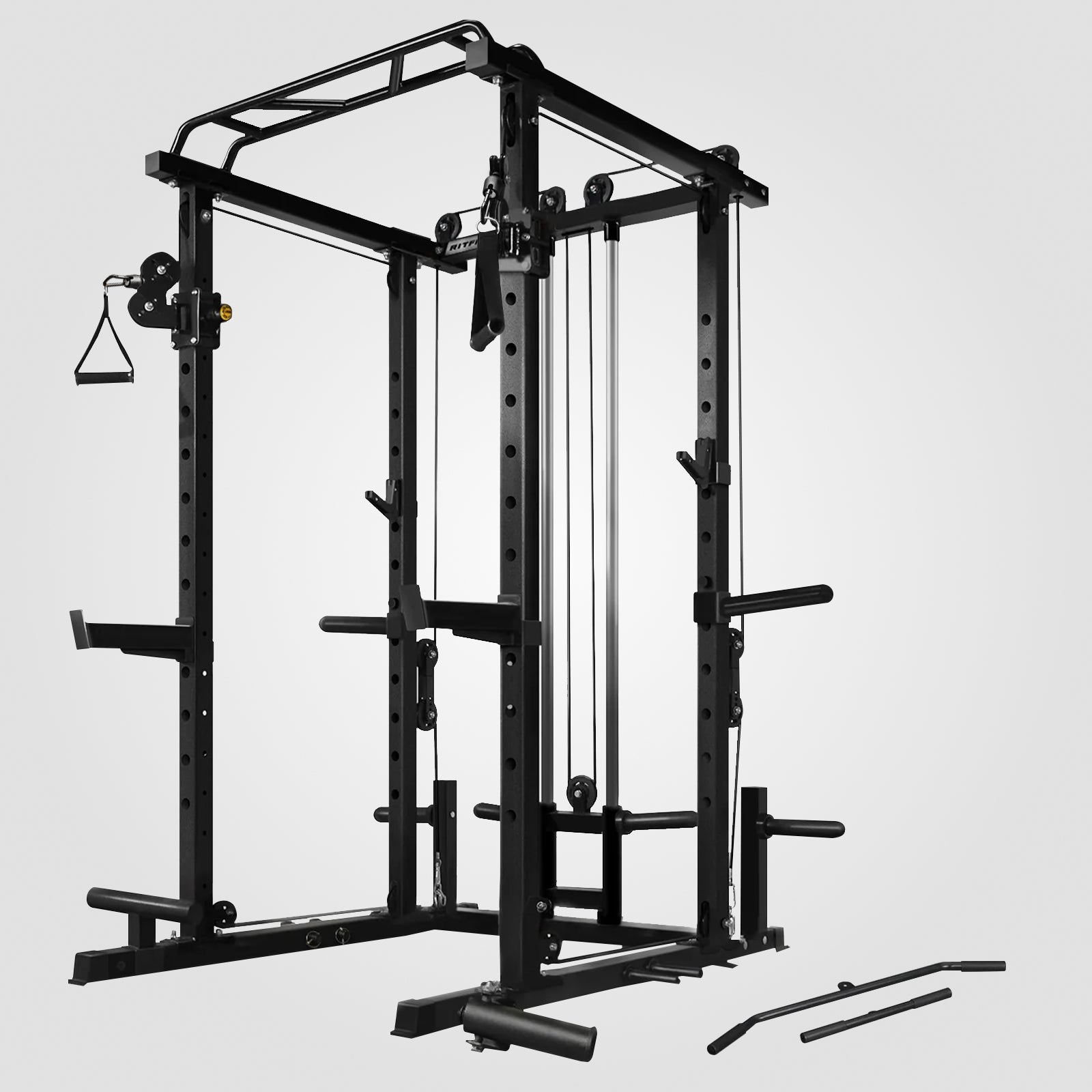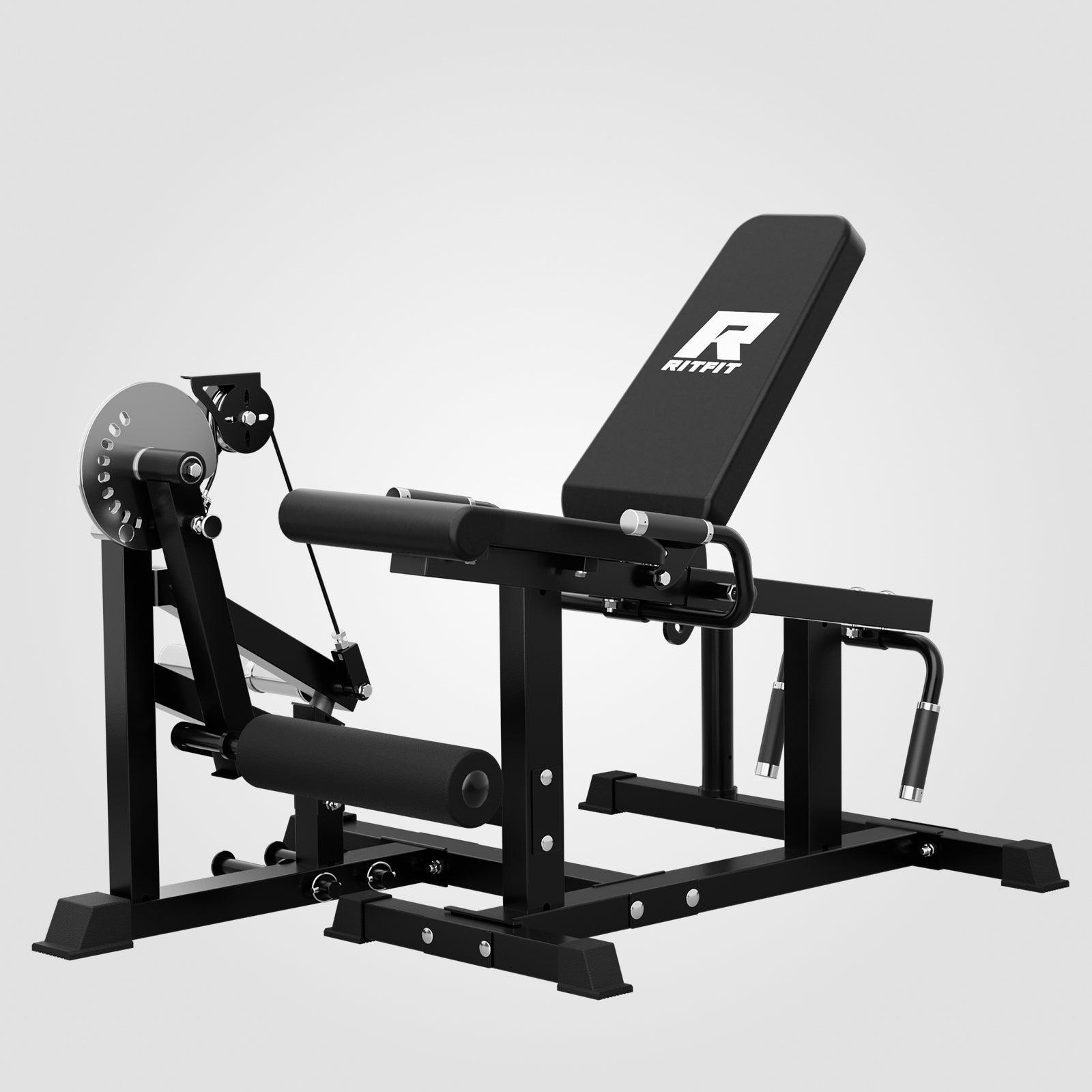The push press is a popular exercise for building muscles and improving stability. It is one of the most common workouts in strength training routines as it not just builds shoulders, but uses most of the major muscle groups as well. It relies on the power of the legs, buttocks, back, and core muscles for maximum effectiveness.
Performing this ballistic workout requires proper posture, suitable weights, and guidance. That’s why it may be challenging for an amateur to get started with it. This article will tell you everything you need to know about the push press including a step-by-step guide, the muscles used in this workout, the advantages, and some frequent mistakes to avoid. So let’s dive right into it!
What is a Push Press?
This is a strength training exercise that uses the quad, glutes, and upper body to lift the weight overhead. It involves bending your knees slightly and then lifting the weight over your head in a standing position. The press can be performed using various gym equipment including a barbell, kettlebell, dumbbell, etc. In simple terms, it is an overhead press variant that can be performed by pushing the weights mainly using your leg strength to lift.
This strength training is frequently performed by weightlifters to bulk up and strengthen their muscles, but athletes who compete in sports that require strong jumping mechanics also incorporate this exercise in their training. If we talk about a regular person, this can help with everyday tasks as well because lifting objects is made easier by having stronger muscles.
Push Press Form and Techniques
How to Do the Push Press (Step by Step)
Step 1: Stand straight with legs slightly wider than the shoulder. Hold the weights to your chest while the elbows are at an inwards angle as it helps the spine to stay vertical. Keep the grip strong and close as it offers much flexible movement.
Step 2: Bend your knees slightly to push them out smoothly. The position you want your body to be in is known as the quarter quad position. It should be quick and the weight should still be resting on your chest. The power should be derived from the glutes and hamstrings and not just the knees.
Step 3: Use your legs and upper body to force the weight to go overhead. While pushing the weights up, the heels will come off the floor for a second or two. Ensure that you maintain balance and do not keep the heels in the air any more than necessary.
Step 4: Bring the bar or weights back to the initial position. Change your grip from a loose one to a tight one as you press the barbell above. Bend your legs to balance the bar as it comes back to your shoulders from overhead.
Push Press Common Mistakes to Avoid
Bad Feet Position
A proper foot position is essential since it increases the exercise's effectiveness. A wider stance increases the difficulty and can also engage the wrong muscles, leading to a risk of injury. On the other hand, standing with your feet too close together makes the workout more difficult than necessary. The feet should be slightly wider than the hips or you can say shoulder wide.
Not Selecting the Right Weights
Choosing the right weights for sessions is essential to successful weightlifting training. Since it is a challenging exercise with a serious threat of injury, deciding the right weights is crucial. Talking to a professional trainer before starting is quite helpful to keep you on the right track.
Rough Dip
Knee movement is a significant part of this workout. The quarter squat position that needs to be achieved should not be rushed. Going down smoothly and then standing back up without putting unnecessary pressure on tissues can be the difference between and good and a bad press.
Only Using Arms for Power
An overhead press is not just about the arms. Engaging all your core muscles such as the glutes, hamstrings, and legs are necessary. So don’t just use your upper body because that will beat the main purpose.
Push Press Muscles Worked
Glutes
The glutes are the largest and strongest muscle in the human body. The gluteus maximus, gluteus medius, and gluteus minimus make up the gluteal region, popularly known as the buttocks. It is one of the main muscles during different presses.
Shoulders
The Deltoid is the primary shoulder muscle used in this exercise. As these are the main muscles involved, this exercise is beneficial for developing strong, bulky shoulders.
Quadriceps
Your thigh has four quadriceps muscles, which are situated in front of it. They comprise the vastus lateralis, medialis, intermedius, and rectus femoris. The rectus femoris, which helps in rip flexion, is the muscle that is mainly used when performing a press.
Benefits of the Push Press

- Motor Control and Coordination: It would not be wrong to say that a press is more of an athletic workout as it requires you to use several body parts to fire at once. It is all about timing and coordination. Once you master it your motor control and full body coordination automatically improve.
- Full Body Engagement: A push does not come from just your upper body. The entire body is used to build momentum for the smooth execution of this workout. Thus, it engages all major muscle groups either directly or indirectly.
- Improved Weightlifting Technique: This compound move helps you learn proper techniques that can assist when advancing to complex exercises or lifting heavier weights. For example, people often include this in their routine before incorporating split jerk.
Push Press Variations
Barbell Push Press
This variant is one of the most popular ones. Take a barbell and place your palms forward at shoulder height. To begin, place your feet shoulder-width apart and budge your knees just a little. To powerfully press the barbell straight above your head, push it up with your legs, rather than just your arms. reset the position for the second rep.
Dumbbell Push Press
Stand straight with dumbells at shoulder height with wrists vertically over your elbow. Bend down and use your legs to push the weights up.
Kettlebell Push Press
This variant can be performed with either one or two kettlebells. You have to hold them in a front rack position. Like all other variations, this also requires keeping your back straight and avoiding unnecessary knee bending.
Single Arm Push Press
The correct foot position is to stand with your legs shoulder wide. Hold a kettlebell in front of your chest, elbow close to your ribs. Then, drive the legs into the ground and extend the arm with weights straight up in the air. Then bring it down to shoulder height for another rep.
Landmine Push Press
This variant is slightly complex as it requires a landmine. Stand with your back straight and your feet shoulder-width apart. Put one hand on the barbell and the other in a relaxed position. After setting up the barbell, exhale deeply before pressing to lockout by flexing the shoulder and extending the elbow. To complete the necessary number of repetitions, slowly descend the barbell from your shoulder to the starting position.
Safety and Precautions
This weight-training overhead exercise is quite tempting, especially for beginners. You may see people with an ideal physique doing it around you and that entices you to start doing it right away. Keep in mind that this is a high-level exercise with serious risks of injury if not done with full concentration and knowledge.
It is best to start by learning the fundamentals of this exercise as well as the proper stance and posture. Even then, begin by doing it under the guidance of an experienced trainer while using smaller weights. Performing the movements, without weights, in front of the mirror can significantly improve posture and movements.
Push Press Alternatives
Seated Dumbbell Shoulder Press
This workout is one of the most popular alternatives. It targets the shoulder muscles to build shoulder strength and mass. sitting down reduces the requirement for core stabilization, so you can concentrate more on pushing the primary muscles only.
Muscle Clean
This alternative also focuses on shoulder muscles as this is incredible power-building training. As the name suggests, it cleans all the muscles that are under the bar and you are only making your upper body muscles work. It allows you to improve your movement and posture before advancing to complex exercises.
Push Press Vs. Overhead Press

Many people would use these words interchangeably thinking they are the same. But they are the names of different workouts. Each lift has a distinct aim and execution. A person performing the press will use his entire body including the legs and knees to push the weights up. On the other hand, an overhead press only requires upper body strength to push the weight overhead in a more static movement.
The push press is prioritized if one is looking for athletic proficiency as it helps with speed and balance. Whereas the overhead press is considered a good starting point if you are a beginner.
Push Press Faqs
Who Should Do The Push Press?
The press is a difficult exercise that only comes after you have mastered other basic strength training workouts.
Newbies can perform it but only under the supervision of a trainer. It is crucial to maintain the right posture as without it, the benefits are compromised.
Weightlifters do include overhead presses of some kind in their workout routine. It is an exercise that puts pressure on your shoulders and helps build muscle mass.
Professional athletes also do this workout as it helps them not just improve strength bus also balance and full-body coordination.
How Many Reps And Sets Should I Do For A Push Press?
The answer to this question depends on your workout goals and how experienced you are.
- Those who want to gain muscles should try to perform from four to six reps.
- People who want to build body strength should do three to five reps.
Keep in mind that increasing the reps will not benefit you if you are unable to perform the exercise properly. In fact, it can lead to the breakdown of form and potential injury.
You can perform one to three sets depending on how extensive you want the training program to be.
- Beginners should do 1 set
- Experienced people should do 2-3 sets
The sets and reps are interdependent and maintaining a balance is crucial. If at any point you think the workout is becoming too easy and you can do more than that, go for it.
How Can I Incorporate Push Press Into My Training Program?
It's not a good idea to let one activity take over your entire training schedule. Make sure to combine the overhead press with other strength training exercises like the kettlebell or barbell snatch. Start with allocating a small part of your routine to it and then increasing it over time.
How Can I Increase My Push Press Weight?
Many people want to rush their way to extensive exercise without realizing it can bring serious consequences. Always ask your trainer before adding more weight to your routine. Adding one more rep to each set is the appropriate way to advance.
Summary
The Push Press is one of the most athletic exercises you can include in the training routine. At the start, people often struggle to build momentum and perform it with smooth movement. But a little practice can get you started with this amazing strength training exercise in no time.



